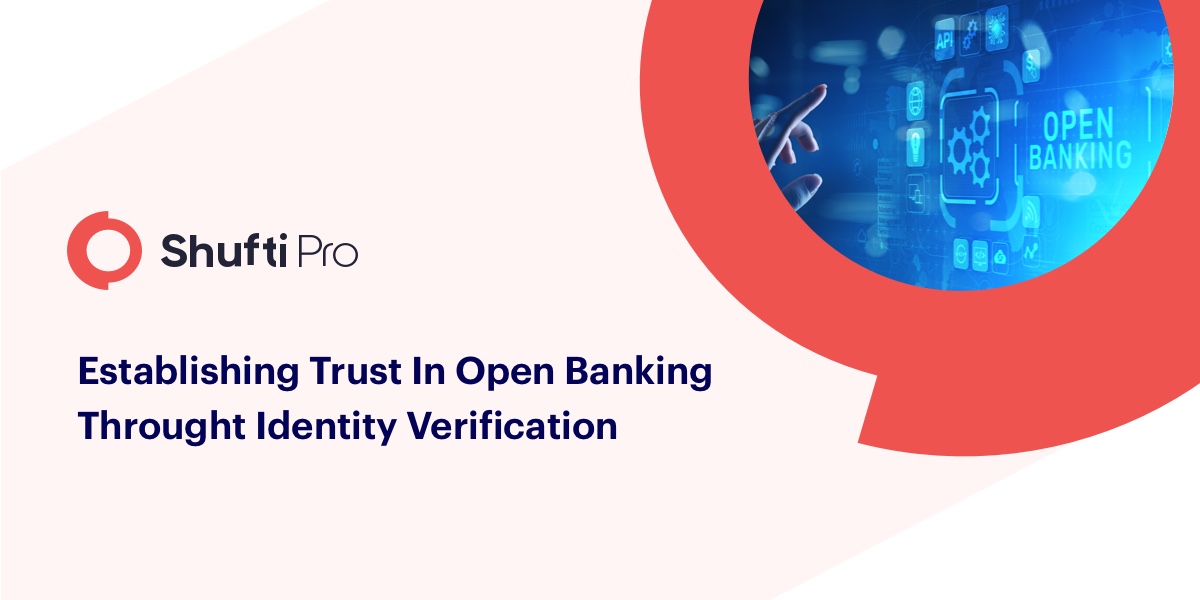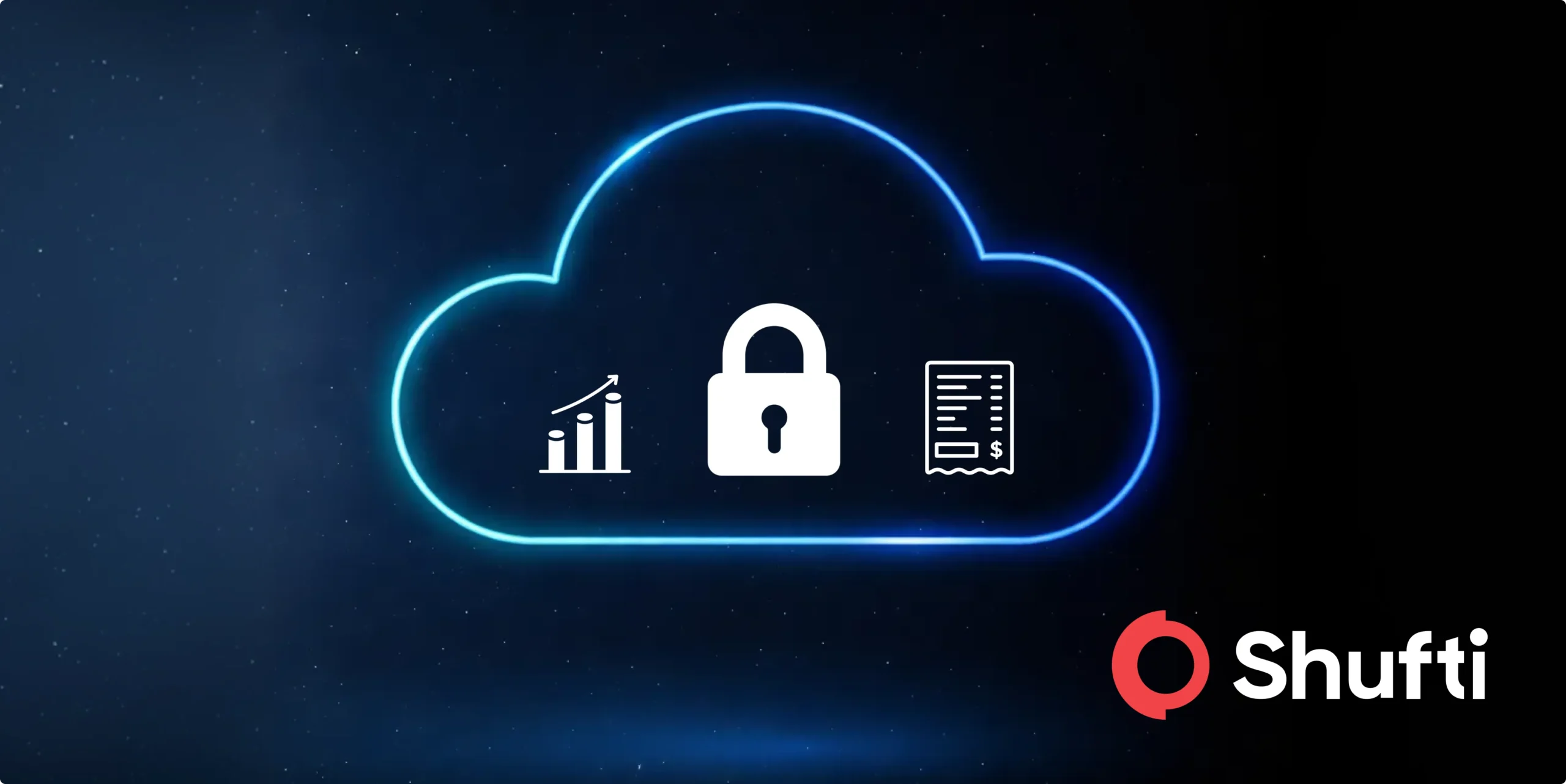Establishing trust in Open Banking through Identity Verification

Over the last few years, open banking is becoming an emanated global trend. This rising trend is driving a significant change that how individuals and businesses are going to consume financial services since the industry is shifting towards a data-driven digital economy. Businesses are struggling to provide more reliable opportunities to customers that can efficiently overcome the new challenges posed by the new digital ecosystem.
The expanding customer-centric regulatory frameworks are pushing organizations to leverage the latest technology innovations and offer comprehensive control to customers over their data and identities in the digital sphere. The fully integrated digital ecosystem demands seamless navigation of businesses as well as individuals across the ecosystem without worrying about onboarding experiences.
What exactly is Opening Banking?
Open banking is known as a secure way to allow service providers to access your financial information. It allows third-parties to develop apps and solutions around banks and other financial institutes. The motivation behind this concept is to provide enhanced scalability in financial services.
Open banking is undoubtedly a beneficial innovation and like traditional banking, integrating effective and seamless Know your customer (KYC) and Anti-money Laundering (AML) process remains a primary focus of the industry. The main challenge to industry-wise KYC initiative is to balance between security standards and the customer experience and establishing trust in the open banking sector.
Shortcomings in the Traditional Verification Process
Identity has traditionally been verified through the physical provision of documentation that confirms a person or a business. Historically, the acquisition of goods or services required face-to-face interaction and, therefore, the presentation of verification documentation didn’t create a significant burden. The evolution of digital channels has resulted in increased remote availability of goods and services, but the corresponding identity verification process has largely been left behind. The failure of identification services to digitize in line with evolving digital channels has led to issues that must be resolved if the promise of an increasingly digital economy is to be realized for customers and financial institutions.
Challenges in Open Banking
These challenges lead to a lack of trust in open banking, also banks are still reluctant to embrace the digital shift due to high-rates of cybercrimes in open banking.
1- Need for detailed Information of Customers
Open banking relies on big data, collected from the customers. Even if manual customer onboarding is practiced, customers are required to provide a lot of information, and legal identity documents that are hectic and demotivates customers, who demand more from the technologically advanced banking industry. And if online information is collected the risk of fake customers or identity thieves is high.
2- Lack of Standardized Verification Mechanisms
Open banking is the collaboration of banks and tech companies to provide better customer experience. As this concept is still new there is no standardized process to execute open banking systems. Ultimately it has an impact on economies of scale and customer retention. At times the project turnover is not as expected, due to lack of standardization which is present in typical banking operations. Banks have no predefined and centralized system for customer security during open banking data sharing.
3- The Risk of Digital Service providers
Banks are not the only one that has challenges, the digital service providers also have several challenges to handle once they have access to customer data. Data collection through the integration of data transfer APIs is the very first step, the digital service providers can’t rely completely on the data provided by the bank. They also need to practice security on their platform. For this security, they need some equally competent solution that would not affect customer experience.
4- Lack of Customer Awareness
Customers are gradually accepting the advantages of open banking. Older people are less likely to allow such data sharing, but the case is different with Millenials. Therefore customer education regarding the scalability and pros/cons of open -banking is vital.
This is also one of the challenges of open banking. Banks and digital financial solutions need to invest in customer education to get the most out of open banking. They need to show some sort of visible security measures to gain customer trust.
5- Bad Customer Experience
Customers allow for open banking to get a better online experience and to streamline their financial activities. So it is evident that they demand more from their banks and tech companies who use their data to give a customized experience. This enhanced customer experience gets tarnished with long on-boarding processes and weak security measures of online data collection and sharing. It also becomes a hurdle in gaining customer trust.
Competition is increasing and providing enhanced customer experience is the key to success. The onboarding process is vital to gain retainable customers, and manual verifications leaves a bad impact on the customer onboarding experience.
6- Demanding laws for Digital Banking
The technological advancements have boosted the profits of banks, but it is controlled with stringent regulatory obligations. Banks and digital financial solutions are bound by a list of compliance obligations, under customer due diligence, cyber protection laws.
KYC (Know Your Customer), AML (Anti Money laundering) and data protection laws are the primary concerns of reporting entities. Fulfilling these laws in online spaces requires highly competent solutions because manual verifications fail advanced cybercrimes.
7- Increased Cybercrime
Banks and their third party affiliates, both are exposed to cybercrimes. Banks face the risk from their customers and businesses. Customers might give wrong information or use a stolen/synthetic identity to onboard, while the business might be a fraud. Not every prospect is reliable and a business opportunity might turn to be the biggest liability in the form of a data breach.
In case a business misuse the data of the bank’s customers, the regulatory authorities will question the banks first and it will affect the market value and credibility of a bank.
Online KYC is the Solution
All the above-mentioned challenges are keeping many financial institutions from embracing revolutionizing banking advancements. Online KYC/AML and KYB screening are the solutions for these problems.
Online KYC screening solution screens the customers in real-time through their identity documents. Banks can utilize from its enhanced version which is video KYC. It performs online KYC through a live video call with the customer. Video KYC expert verifies liveness, and the identity documents and face are verified through artificial intelligence. It is the substitute for in-person verification and allows high security that banks need to practice in case of remote customer onboarding.
AML screening solution screens the customers against the global sanctions list, blacklists, and PEPs lists. It ensures that criminal entities are not onboarded.
KYB or Know Your Business screening verifies a business entity in real-time by collecting the information related to that entity from reliable sources and also screens it against blacklists and watchlists. Ultimately enabling banks to build transparent B2B relationships.
These solutions are designed to counter all the challenges mentioned above.
1- The enhanced Customer Experience (friendly interface)
The interface is developed while keeping in view the diversity of the customers and businesses that connect with banks. Easy to use interface enhances customer experience as the necessary information is collected within seconds with easy to perform steps for the end-user.
2- Global Scalability
The primary motive of open banking is to increase the scalability for financial services. These AI-based solutions have the ability to perform KYC/AML and KYB screening on business entities from any part of the world. So the businesses need not worry about the secure onboarding of international clients.
3- Aligned with Data Protection Laws enhances Customer Trust
Data protection laws are quite strict for banks and businesses that benefit from data sharing. For instance, GDPR and CCPA require the reporting entities to practice vigilant security measures to ensure the security of customer data.
AI-based identity screening solutions are aligned with the data protection law to provide peace of mind to the banks, while they’re entering the digital revolution through open banking. It is a big relief as data is the primary asset of open banking and compliance with the data protection laws enables banks to fully utilize it.
To wrap up, the world has evolved digitally and the need for adopting revolutionary technologies promises a prosperous future of the banks and businesses. Banks and digital businesses can achieve huge benefits from this fusion, but securing it with digital identity screening solutions ensures unparalleled growth and profits.










